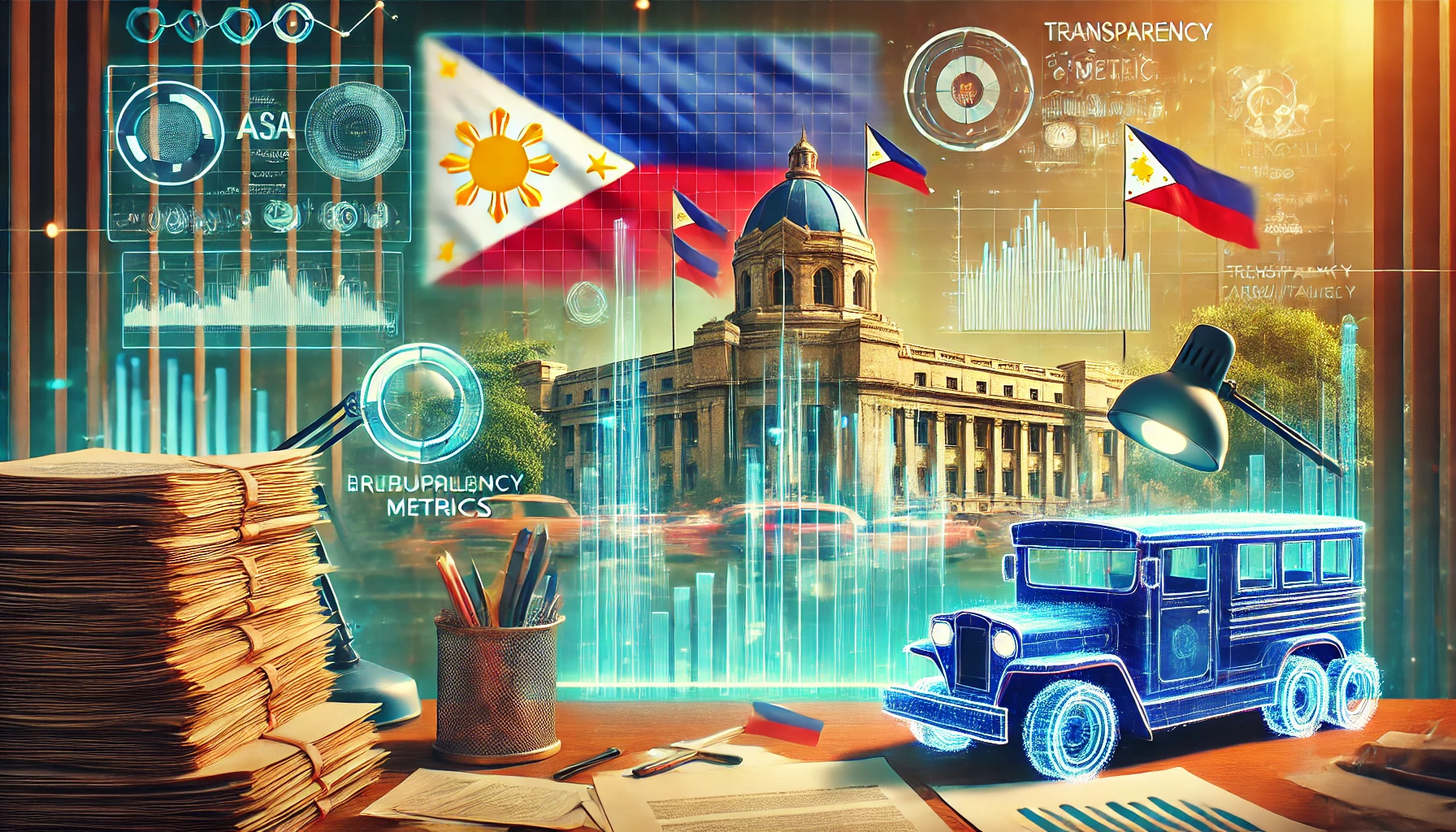Corruption remains a persistent challenge in the Philippines, deeply ingrained in various layers of bureaucracy. From procurement fraud to bribery, the lack of transparency and accountability undermines public trust and hampers socio-economic development. Artificial General Intelligence (AGI), with its unparalleled capability to analyze complex systems, adapt to dynamic scenarios, and facilitate transparency, presents a promising solution to address this issue. This article explores how AGI can be a game-changer in the fight against bureaucratic corruption in the Philippines.
The Current Landscape of Bureaucratic Corruption
Bureaucratic corruption in the Philippines manifests through inefficiencies, favoritism, and misuse of public funds. Issues such as opaque processes, limited access to information, and weak enforcement mechanisms exacerbate the problem. These systemic challenges demand innovative, technology-driven solutions to foster good governance and rebuild public trust.
AGI: A Revolutionary Tool for Transparency and Accountability
AGI’s adaptive intelligence surpasses traditional AI in its ability to comprehend and address corruption holistically. Below are key ways AGI can be harnessed to combat bureaucratic corruption:
1. Automating and Monitoring Public Procurement
The government’s procurement processes are particularly vulnerable to corruption. AGI-powered systems can:
- Analyze Procurement Data: Identify irregularities in bidding processes by cross-referencing historical data and detecting patterns indicative of favoritism or overpricing.
- Real-Time Monitoring: Track the progress of projects to ensure compliance with contracts and prevent ghost projects or fund misallocations.
- Public Dashboards: Create transparent platforms where citizens can view procurement details, such as winning bidders, costs, and timelines.
2. Improving Financial Transparency
AGI can enhance financial accountability by:
- Tracking Public Funds: Implementing ledger systems powered by AGI to monitor government transactions, reducing opportunities for embezzlement.
- Predicting Risks: Identifying potential corruption risks by analyzing spending patterns and flagging anomalies.
- Simplifying Audits: Automating auditing processes, making them more efficient and less prone to manipulation.
3. Enhancing Accessibility to Public Records
A significant hurdle in fighting corruption is the lack of accessible public records. AGI can facilitate:
- Data Integration: Consolidating government records into a unified system, making it easier to cross-check information.
- Language Processing: Translating documents into local dialects, ensuring accessibility for citizens across the Philippines.
- Citizen Portals: Creating user-friendly platforms where individuals can request public records, report corruption anonymously, or access information about government activities.
4. Strengthening Law Enforcement and Judicial Processes
The judicial system often faces delays and inefficiencies in prosecuting corruption cases. AGI can:
- Streamline Case Management: Automate case tracking and prioritize corruption-related cases to ensure timely resolution.
- Evidence Analysis: Process vast amounts of evidence, such as financial records and communication data, to support investigations.
- Predictive Analytics: Anticipate corruption hotspots and allocate enforcement resources effectively.
5. Empowering Citizen Oversight
Empowering citizens is crucial for sustainable anti-corruption efforts. AGI can:
- Crowdsourcing Corruption Reports: Analyze citizen reports for actionable insights and trends while protecting whistleblower anonymity.
- Interactive Tools: Develop chatbots or virtual assistants to educate citizens about their rights and provide guidance on reporting corruption.
- Social Media Monitoring: Track and analyze public sentiment and social media trends to identify corruption-related concerns.
Challenges and Ethical Considerations
While AGI offers transformative potential, its implementation must be carefully managed:
- Data Privacy: Robust safeguards must be in place to protect sensitive citizen and government data.
- Bias Mitigation: Systems must be designed to avoid bias that could unfairly target individuals or groups.
- Inclusivity: Solutions must be accessible to all citizens, particularly marginalized communities.
- Accountability: Mechanisms should be in place to ensure AGI tools are not misused by corrupt officials.
Conclusion: A Future of Transparent Governance
The integration of AGI into governance systems holds the promise of reducing bureaucratic corruption in the Philippines by fostering transparency, ensuring accountability, and empowering citizens. However, the success of such initiatives depends on a collaborative effort between government, private sectors, and civil society to ensure ethical implementation, public trust, and sustained progress.
By leveraging the transformative power of AGI, the Philippines can take a significant step toward eliminating corruption and building a society rooted in trust, equity, and integrity. The road ahead requires bold leadership and a commitment to technological innovation, but the potential rewards are immense—a nation where transparency and accountability are the cornerstones of governance.
[SEO optimized]


